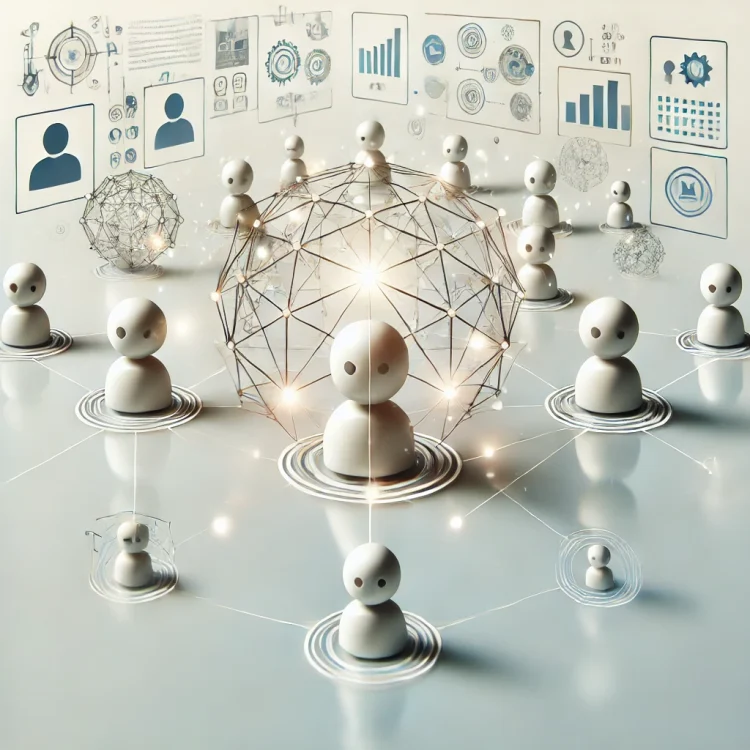The Rise of AI Agents and the Marketplace of Collaboration
AI agents are becoming a powerful force in today’s digital landscape, thanks to their ability to not only process information (like traditional large language models) but also interact with the world. These agents are equipped with “eyes” and “hands” — able to ingest data from external APIs and take real-world actions. This gives them agency, purpose, and the ability to perform tasks that impact the physical world, such as placing orders or even steering autonomous vehicles.
This capability opens up an exciting new horizon: the marketplace of AI agents. Much like humans and businesses collaborate to provide valuable services, AI agents will also participate in this ecosystem. They will have agency, resources, and economic roles — enabled by provisioning hardware and, potentially, receiving seed funding in the form of cryptocurrency to operate in the economy. We may see entirely new interactions emerge, like A2A (agent-to-agent) or even A2B (agent-to-business) transactions, where agents negotiate tasks, define interfaces, and collaborate autonomously.
One possible future could involve Distributed Autonomous Organizations (DAOs) — collections of agents working together with defined purposes, sub-contracting work to other DAOs, agents, or even humans. These AI entities could collaborate across industries, especially in areas like travel, finance, and procurement, where the complexities of information and the need for personalized services make them an ideal fit.
However, the rise of these agents also brings new challenges. The potential for unintended consequences, like the infamous “paperclip problem,” where an AI maximizes resource use for a seemingly harmless task, is real. Speed and efficiency in executing tasks, though beneficial, could lead to large-scale errors being implemented before human oversight can intervene.
Ethical concerns also arise around how AI agents operate. If they act independently as economic entities, their activities could reflect both human virtues and vices. Lawmakers will need to adapt, ensuring agents are held accountable for their actions, while proactive measures like transparency in agent objectives or even the development of policing agents might be necessary to keep them in check.
Additionally, there’s a looming question about the impact on humans. As AI agents take on more work, there’s a risk that humans may feel disenfranchised, their purpose diminished. Yet, this future could also lead to new opportunities for exploration, creativity, and collaboration — unlocking worlds we’ve yet to imagine.
The rise of AI agents represents a significant shift, and we are on the cusp of a new era in which humans and AI will navigate an evolving marketplace together. Whether that leads to unprecedented innovation or unexpected challenges remains to be seen.


